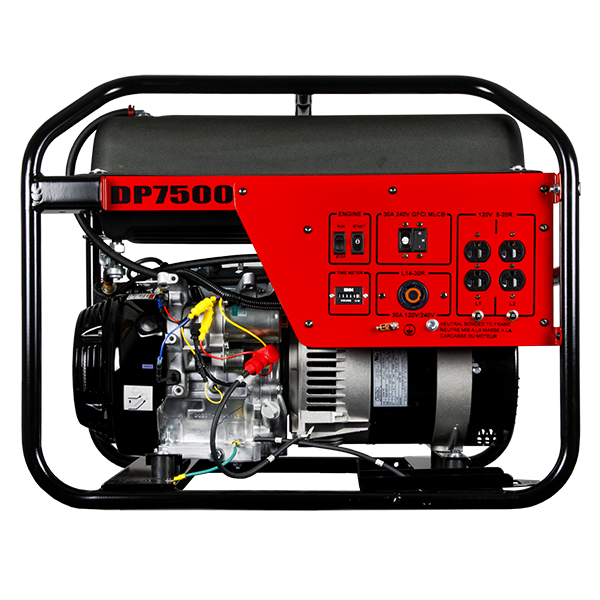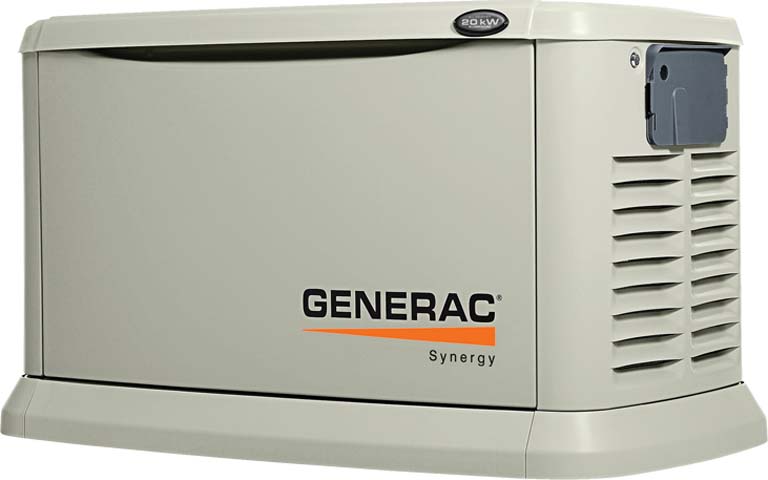

When considering backup power options, understanding the difference between standby generators and portable generators is crucial.
Standby generators, preferred by many homeowners and businesses, offer automatic operation during outages, handle larger loads effectively, and provide continuous power from natural gas or propane without frequent refueling. This blog explores why standby generators are often the superior choice over portable alternatives, highlighting their convenience, reliability, and enhanced safety features.
Automatic Operation:
Imagine a storm hits and the power goes out. With a standby generator, it kicks in automatically, keeping your home or business running smoothly without you lifting a finger. Portable generators, on the other hand, require manual setup and starting, which can be inconvenient during emergencies.
Power Capacity:
Standby generators are like the powerhouse of backup power solutions. They’re designed to handle big jobs, like powering your entire home or critical systems in your business. Portable generators, while handy for smaller devices, might struggle with bigger appliances or multiple high-wattage gadgets.
Fuel Efficiency and Type:
Picture this: your standby generator quietly humming away, connected to natural gas or a large propane tank that keeps it running for days without needing a refill. Portable generators, on the flip side, run on gasoline or diesel, needing regular refueling, which can be a hassle during prolonged outages.
Convenience and Ease of Use:
Installing a standby generator means it becomes part of your home or business’s infrastructure, seamlessly integrated into your electrical system. Yes, it requires pro installation and maintenance, but it’s a set-it-and-forget-it solution. Meanwhile, portable generators need manual setup, ongoing fuel management, and a place to store them when not in use.
Noise Levels:
Ever noticed how some generators sound like a lawnmower on steroids? Standby generators are designed to operate quietly, with features that reduce noise. This makes them a better fit for residential areas or businesses that need a peaceful environment. Portable generators, however, can be quite noisy, which might not sit well in quiet neighborhoods or serene workspaces.
Safety Features:
Safety first! Standby generators come with smart features like automatic shutoff systems to prevent issues like overheating. They’re engineered to keep your property and loved ones safe. Portable generators have safety features too, but they require careful handling to avoid risks like carbon monoxide poisoning if used improperly.
Property Value:
Picture this perk: installing a standby generator not only ensures uninterrupted power during outages but also boosts your property’s value. It’s a reassuring feature for potential buyers in areas prone to blackouts or severe weather.
Long-Term Investment:
Yes, standby generators can cost more upfront, but think of them as a long-term investment. They’re durable, reliable, and have lower maintenance needs compared to portable generators that might need more frequent repairs over time.
When it comes to choosing between standby and portable generators, the decision should revolve around your unique needs. Standby generators stand out for their unparalleled reliability, convenience, and ability to power entire homes or businesses seamlessly. While portable generators are initially more affordable, they may not provide the same level of peace of mind or ease of use during emergencies. Take the time to evaluate your power needs and long-term objectives to determine which generator type best suits your situation. Your choice today can ensure you have dependable backup power for tomorrow’s unforeseen events.
If you’re interested in browsing through different standby generator models and portable generators, browse through our generator selection. If you need help finding a specific home generator model, send us a message today!
